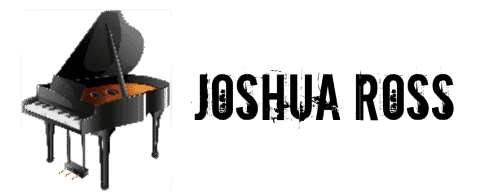As an Amazon Associate I earn from qualifying purchases.
The cost to have a piano restrung typically ranges from a few thousand dollars to the higher end of the spectrum, depending on the type and condition of your instrument.
For example, restringing an upright piano might set you back between $2,000 and $4,000, whereas a grand piano, because of its larger size and complexity, could cost anywhere from $4,000 up to $10,000. The investment reflects the intricate work and expertise required to bring those strings and hammers back to their best.
Want to Learn Piano?Click Here

As a piano owner, it’s important to understand that the value of the piano restoration process is not just in the cost, but in the renewed life and sound quality of your treasured instrument.
To restring a piano is not simply replacing old strings but involves careful tuning and often repairing or replacing other components, such as the soundboard or the keys. My experience with a century-old grand piano underscored the transformation that expert restringing can bring.
Post-restoration, the instrument’s rich, nuanced tones reminded me of why pianos are worth every penny of maintenance: for the love of music and the legacy that carries on in each note.
Understanding Piano Restringing Costs

Restringing your piano is a significant undertaking, and understanding the associated costs is key to planning this important maintenance.
Each piano is a world of its own and restringing it is as delicate as performing a piece of music; each string is a note in the financial symphony that will culminate in the harmony of a beautifully sounding instrument.
Assessing Restringing Necessities
Before considering the cost of restringing, consider the necessity of the task. If your piano is an antique or has a sentimental value, restoring it with new strings might be a priority. For a baby grand piano, the tonal benefits post-restringing can be substantial.
However, a newer upright piano may not require such intensive care just yet. Assess the condition of your piano’s pin block, tuning pins, and strings before committing to restringing.
Factors Influencing Restringing Price
The price of restringing a piano can vary widely primarily due to the type of piano. A full-size grand piano will typically cost more to restring than an upright piano because of its larger scale and complexity.
The quality of materials—such as high-grade piano strings and tuning pins—also plays a significant role. And if your piano requires pin block replacement, this can substantially increase the cost of restringing.
Example Pricing Table:
| Type of Piano | Cost Range |
|---|---|
| Upright Piano | $2,000 – $4,000 |
| Baby Grand Piano | $4,000 – $10,000 |
| Grand Piano | $4,000 – $10,000 |
Note: These are average costs and actual prices may vary.
Labor Costs and Technician Fees
Finally, the labor cost and fees for a qualified technician are substantial factors in the total expense. Restringing a piano is a time-intensive task, requiring 20 to 25 hours for an upright piano and more for a grand or baby grand piano.
A specialist’s expertise is crucial, especially when restoring an old piano, to ensure the integrity and sound quality are preserved.
Additional Expenses and Value Considerations
When you decide to have your piano restrung, the cost isn’t confined to the strings alone. Factors like the piano’s condition and age, potential repair needs, and the type of piano can all affect the final price. It’s important to consider these to ensure your investment enhances the instrument’s value and longevity.
The Role of Piano Condition and Age
Your piano’s age and condition play pivotal roles in determining the restoration cost. Older pianos might require more extensive work, including soundboard replacement or action reconditioning.
If the instrument has historical or sentimental value to you, this might justify the potentially high expense of restoration compared to replacing it with a new one.
Potential Restoration and Repair Costs
Restoration can be quite the project, involving various non-material costs like labor and expertise. Here’s a quick breakdown:
- Material Costs: Includes strings, pins, felts, and finishes.
- Labor: This is typically the largest expense and can include refinishing, repairing, and reconditioning each component of the action.
- Expert Fees: Skilled restoration experts command higher rates for their services, but the quality of work often speaks for itself.
For a grand piano restoration, you might be looking at anywhere between $5,000 to $20,000 due to the complexity and size, while upright piano restoration could be between $2,000 to $10,000.
Maximizing the Investment in Your Piano
Investing in your piano goes beyond the financial aspect—it’s about the joy and value it brings into your life. Always weigh the cost of potential repairs with the piano’s value post-restoration.
If restoring the instrument will significantly increase its playability and sound quality, or if it has substantial sentimental value, then restoration can be a worthwhile investment.
Hello & thanks for stopping by! I’m a professional concert pianist and piano instructor. In the United States, I’ve given successful performances in several places including New York, Florida, Connecticut, & New Jersey, I have also performed internationally in Italy and made my Carnegie Hall debut in 2014. I enjoy blogging about the piano, the art of performance, general music, current events and the latest in music production.
